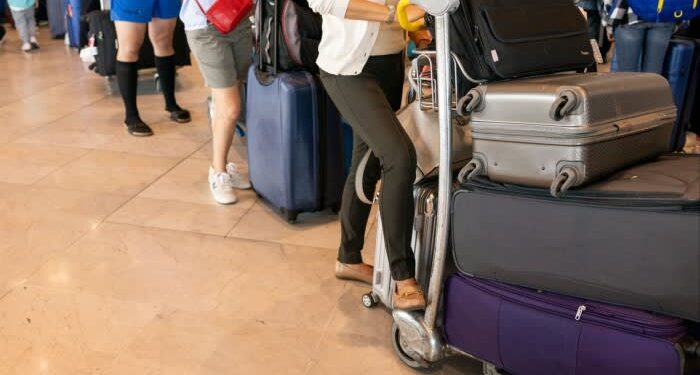Roula Khalaf, Editor of the FT, selects her favourite stories in this weekly newsletter.
Germany and France have told Brussels that the EU’s biometric border checks are not ready for roll out, as airlines and airports warn of “chaos” for travellers if the untested system goes live in six weeks.
The EU’s biggest countries want the European Commission to urgently rethink its November 10 launch plan because the main computer system will be unable to cope with one of the biggest ever changes to the bloc’s border procedures.
The “Entry Exit System”, or EES, will require all non-EU citizens, including British visitors, to queue at airport immigration to register their personal details, including fingerprints and facial images, when they first visit the bloc.
The European Commission told the Financial Times that while it was working to launch the border checks “as foreseen”, rolling out the system was a “complex operation and delays cannot be completely excluded”.
Trade bodies representing airlines and airports in Europe said that passengers might face “widespread disruption” from the significantly longer border procedures.
The three EU countries most affected — Germany, the Netherlands and France — have still not declared their readiness to go ahead, according to people familiar with the matter.
Germany’s interior ministry said its principal concern was the central computer system, overseen by the agency EU-Lisa, which “still lacks the necessary stability and functionality”.
A spokesperson said Germany, France and the Netherlands, which host 40 per cent of traveller traffic affected by EES, “have not yet been able to — and still cannot — implement the final and nationally required tests”.
“The EU Commission is responsible for the timetable,” the spokesperson added. Some countries want the commission to consider alternatives, such as a soft launch to test the systems in pilot areas.
The UK government is also concerned about queues at the Channel ports and Eurostar’s station at St Pancras International in London, where passengers will need to register with EES when they go through French customs.
One transport industry executive, who asked not to be named, said they had seen modelling showing that border queues across the EU would be between 30 per cent and 100 per cent longer after introduction of the new scheme.
The system, which the EU first agreed seven years ago, has already been delayed several times. Olivier Jankovec, head of airports trade group ACI Europe, highlighted concerns that there had been no trials of the new rules involving passengers.
“Launching the system without having fully tested it is a huge risk, potentially leading to widespread disruptions across the European air transport network,” he said.
Ourania Georgoutsakou, managing director of Airlines4Europe, said the launch should be delayed until full testing had been carried out and until an app was ready that would allow visitors to register their details in advance.
“There is still a significant risk of disruption that could result in chaos at border points across Europe if the EES is implemented without addressing the serious concerns raised by airlines, airports and member states,” she said.
The EU system, which will replace simple passport checks, aims to electronically register everyone who enters and exits the EU. It would allow border control agencies to automatically detect who is allowed to stay in the bloc and for how long.
Recommended
EU home affairs commissioner Ylva Johansson announced in August that the new system would launch on November 10, and EU-Lisa has declared its systems were ready. But with the three main countries affected raising questions about the rollout date, some officials believe further delays are likely.
“It is a gigantic [undertaking] and the member states want to make sure that the whole system is operational,” said a second EU diplomat, adding capitals were trying to iron out the final “technical difficulties”.
Additional reporting by Guy Chazan in Berlin, Leila Abboud in Paris and Henry Foy and Andrew Bounds in Brussels
Source link : http://www.bing.com/news/apiclick.aspx?ref=FexRss&aid=&tid=66f71b71732c4e19afa5b2b5dc3a73b9&url=https%3A%2F%2Fwww.ft.com%2Fcontent%2F53e7fa8b-41cf-4e00-907c-96f7641fd850&c=15321377119311736586&mkt=de-de
Author :
Publish date : 2024-09-27 13:14:00
Copyright for syndicated content belongs to the linked Source.



